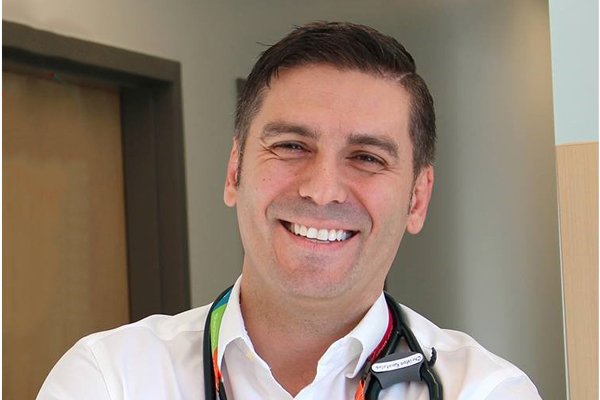
Dimitris Ilias
In the continuation of our discussion with Dr. Karatzios we explore more in depth our immune system. This magnificent and intelligent defensive organ in our bodies. We also cover the similarities and differences of Covid-19 with SARS-1 which vanished a few months after it scared the entire world in 2002.
Take a look at the
featured Local Savings
at the bottom of this page!
Our immune system always needs training but…
“If you live in a bubble all your life, then your immune system is not trained and does not have memory of things that are out there” said Dr. Karatzios. “Let’s say you live in this bubble and have never been vaccinated then if you venture outside for the first time, you will invariably get sick”. Dr. Karatzios brought as an example how little children with “virgin” immune systems get sick all the time when they first go to school for the first couple of years. Then they come home less sick as their immune system learns how to deal with the different microorganisms. So in a way isolation during covid does not give our immune system the opportunity to spar. As Dr. Karatzios noted, if covid would only give us mild symptoms like a cold, then yes, the immune system should get its time in the gym. “The problem is that this virus we’re looking at so much problems-10% of the people infected end up in the ICU. So do you want to end up in the ICU? And do we have enough ICU beds? No!” emphasized Dr. Karatzios.
Mortality rate
There has been a lot of talk about the mortality rate of this virus that Dr. Karatzios does not care too much about. “We don’t have a good measure of what the mortality rate is. We need to be understood is that to get an accurate mortality rate you need to have a denominator. Number of people that died over number of people infected. Right now, we have no idea how many people have been infected. All we are doing is doing throat swabs of the people that have been sick. How about those that did not go to the hospital and others that were asymptomatic. What we see now is the tip of the iceberg” said the doctor adding that there are probably 50 to 100 times more people infected that we never knew about.
Mutations
Like the flu virus, covid-19 mutates. For the moment it appears that it mutates slowly which is good news. I asked the doctor if it could mutate to a stain less dangerous and less virulent than now.
“It has to mutate in a such a way as to lose its virulence. SARS-1 disappeared. It started November 2002 with a huge mortality rate of 10% and then by July 2003 it was gone” said Dr. Karatzios. Apparently, there are some indications that covid is beginning to show the same signs as SARS-1 but we have not yet peaked in cases all over the world. It is too early to foster hope that the virus will mutate in a way to make itself extinct.
Covid-19 and SARS 1
They are in essence brothers. They are both coronaviruses which came from bats. SARS-1 went from bat to civet cat to human and Covid-19, from bat to pangolin to human. Covid-19 is however a much meaner brother (Complex is the word Dr. Karatzios used) because of all these immune over exaggerations that it causes which have led to thrombotic events, kidney failure and lung emboli. It has caused more stroke type events compared to SARS 1 (Severe Acute Respiratory Syndrome).
Testing
Testing speed is a crucial factor in outbreak management. Knowing whether a patient has coronavirus means health care workers know how to act: what treatment to provide; where to place patients in a hospital, especially in communities with dedicated COVID-19 wards; and whether medical staff seeing the patient should conserve or deploy personal protective equipment.
We discussed testing as a possible means to contain the outbreak. I asked if it were possible, eventually to have tests with fast results and in great numbers, isolating immediately any carriers. “We need to have point of care tests that we do not have at the moment” said Dr. Karatzios. You also need to be able to detect all the asymptomatic cases and isolate them as well. “South Korea was able to do it and they are right next to China. They did not close down their economy. They also had excellent virology labs and they were able to test relentlessly while using apps on their phones not to mention that they are a mask wearing society” added the doctor.









